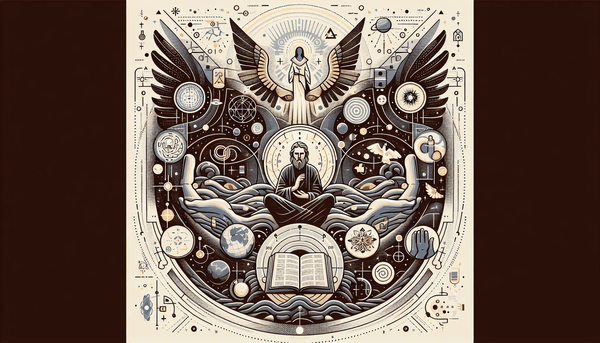Viewing Pornography
Christianity teaches that sexual purity is not only a physical discipline but a matter of the heart and mind. Viewing pornography is at odds with biblical teachings, such as Christ's words in Matthew 5:28 that even looking at someone lustfully is akin to committing adultery. The call to sexual purity is echoed in 1 Thessalonians 4:3-5 and 1 Corinthians 6:18-20, where believers are reminded that their bodies are temples of the Holy Spirit and should be kept pure. Psalm 101:3 and Galatians 5:19-21 further warn against setting wicked things before our eyes and engaging in acts of the flesh that oppose the Spirit. The struggle with pornography is real, but the Bible offers hope for redemption and the strength to pursue a path of righteousness.
Jesus and Israel
Jesus' relationship with Israel is multifaceted, encompassing both compassion and prophecy. He mourned for Jerusalem, as expressed in Matthew 23:37, longing to gather its people as a hen gathers her chicks. His foretelling of Jerusalem's destruction in Luke 19:43-44 was a solemn warning of the consequences of not recognizing the time of God's visitation. Through His teachings and parables, Jesus called the nation to repentance and highlighted His role as the fulfillment of the Law and the prophets, fulfilling passages like Matthew 5:17-18 and becoming the cornerstone of faith for both Jews and Gentiles, as depicted in Romans 9:1-5 and Luke 13:34-35.
Conclusion
As we conclude our exploration of these diverse yet interconnected biblical topics, it is evident that scripture offers a depth of wisdom for every aspect of life. From the celebration of Jesus' birth to the ethical considerations of our personal conduct, the Bible provides both historical context and moral guidance. In delving into these subjects, we are reminded of the significance of upholding the teachings of Christ in our daily lives. May this reflection on the birth of Jesus, the sanctity of relationships, the power of our words, and the hope of prophecy inspire us to live with greater faith, purity, and anticipation of God's unfolding plan.
FAQ
Q: Was Jesus really born on December 25?
A: The Bible does not specifically mention the date of Jesus' birth. The celebration of Christmas on December 25 is a tradition that began in the early church, likely chosen to coincide with pagan winter solstice festivals.
Q: What did God say about having relations with relatives?
A: In Leviticus 18:6-18, God commands that one should not have sexual relations with close relatives, as it is considered an act of sexual immorality.
Q: Is it okay to swear as a Christian?
A: According to the book of James 5:12, Christians are advised not to swear but to let their 'Yes' be 'Yes,' and their 'No,' 'No.' Ephesians 4:29 encourages believers to use speech that edifies.
Q: What did Jesus say about Israel?
A: Jesus spoke of Israel in various contexts, expressing lament over Jerusalem and foretelling its destruction as judgment for not recognizing the time of God's visitation (Luke 19:43-44).






